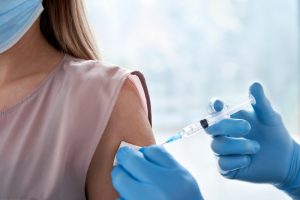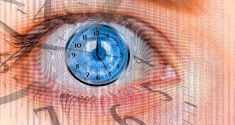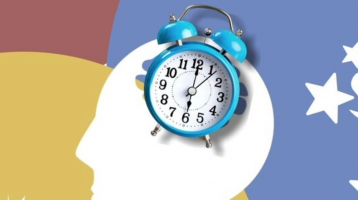Many physiological and behavioral functions, including the immune system, exhibit circadian rhythms. We know that circadian rhythms are generated by “clock genes” that affect most organs and cells – including those of the immune system, whose function varies with the time of day. Accordingly, circadian rhythms are found for various aspects of physiology, including sleep, nutrition, hormone activity, and body temperature. These daily rhythms help the body adapt to cyclical changes in the environment, such as the seasons and the day-night cycle.
Circadian Rhythm and Time of Day of Vaccination
Research from the RCSI University of Medicine and Health Sciences has provided new insight into the mechanism behind how our 24-hour circadian body clock affects our immune response to vaccines depending on the time of day. The study examined the changes taking place in the mitochondria of a key immune cell involved in the vaccine response and could help to improve the design and timing of future vaccines to maximize efficacy.
It had previously been found that people responded more strongly to certain vaccines depending on the time of day the vaccine was given, but the reason for this was not entirely clear. Scientists have now discovered that our circadian clock changes the shape of mitochondria in dendritic cells. The variations in the structure of mitochondria affect how well dendritic cells function throughout the day.
The circadian clock in dendritic cells controls whether mitochondria form one of two shapes, either long strands, “networked,” or broken into small point-like pieces. Within the networked formation, vaccination is most effective because dendritic cells are better able to break down the vaccine into small pieces to interact with our immune cells (T cells). In the study, researchers used an approach to induce the cross-linked phase, which could have implications for vaccine design and allows us to optimize our immune response regardless of the time of day. This understanding could be helpful to ensure we get the maximum benefit from vaccination.
Association Between Antibody Response to COVID-19 Vaccine and Time of Day
What role does time of day play in vaccination against SARS-CoV-2? A study in Japan showed that the antibody response to Moderna’s COVID-19 mRNA vaccine was not dependent on the time of day the dose was administered. Several studies have examined whether the immune response to COVID-19 vaccines varies depending on the time of day the dose was given, but the results were dependent on the type of vaccine, age and gender of the participants. Scientists from the University of Hokkaido and colleagues in Japan conducted a study that found no link between the antibody response to the COVID-19 vaccine and the time of day of vaccination.
The researchers recruited their study participants from Hokkaido University staff and students who had received their first dose of the mRNA-1273 (Moderna) vaccine two to four weeks earlier. Individuals previously infected with COVID-19 were excluded. The study group did not include shiftworkers, a key difference between this and some previous studies of medical workers.
The team collected demographic data from the last group of 332 Japanese participants and drew blood samples to measure antibody titers against SARS-CoV-2. They then performed statistical analyzes to see if there were associations between the time of day participants received their vaccine dose, any of the demographic characteristics, and immune response.
Their analyzes did not find a significant association between the time of day of vaccination and SARS-CoV-2 antibody concentration, but they did find that antibody titers decreased in participants aged 50 to 64, consistent with previous studies. However, the researchers admit that further studies are needed to investigate whether and to what extent circadian rhythms influence the antibody response to vaccination.
T cells Show Different Reactions to Foreign Bodies at Certain Times of the Day
According to a study published in the Proceedings of the National Academy of Sciences, the biological clock influences the effectiveness of the immune response. In fact, CD8 T cells, which are essential for fighting infection and cancer, function very differently depending on the time of day. The study was conducted by a team of researchers led by Nicolas Cermakian, PhD, of the Douglas Research Center, and Nathalie Labrecque, PhD, of the Maisonneuve-Rosemont Hospital Research Centre.
In previous research, the team had shown that T cells respond more or less strongly to a foreign body depending on the time of day, but the role of the biological clock in this phenomenon remained unknown. Using a mouse vaccination model, the scientists discovered that the strength of the CD8 T cell response after vaccination varied depending on the time of day. Conversely, in mice whose CD8 T cells for the clock gene were deficient, this circadian rhythm was abolished and the response to the vaccine was lower during the day.
Research results show that T cells are more prone to being activated at certain times of the day. Identifying the mechanisms by which the biological clock modulates T cell response is helpful to better understand the processes that regulate optimal T cell responses and contribute to improvements in vaccination strategies and cancer immunotherapies.








